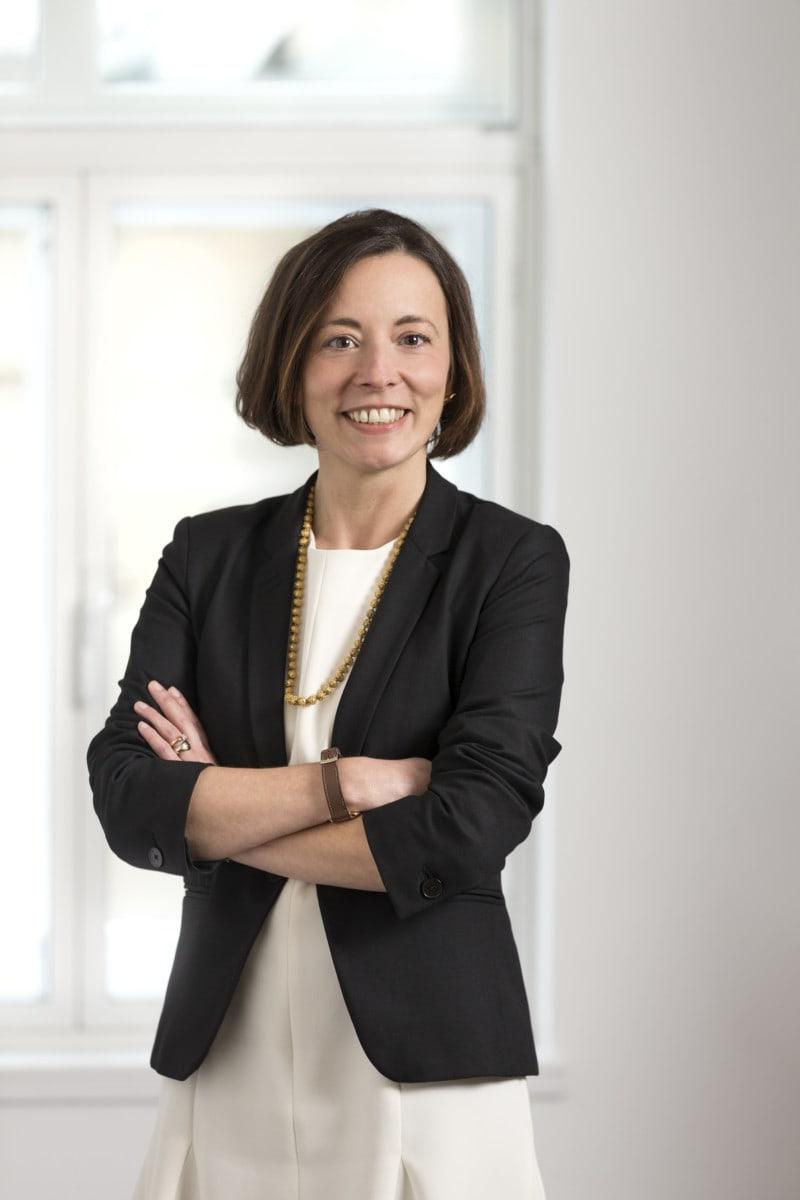Quase um ano desde o início da pandemia covid -19, analisamos o impacto de bloqueios impostos e regras de distanciamento social no setor, onde os contatos pessoais são fundamentais - gerenciamento de patrimônio. Larissa Alghisi Rubner, diretora de comunicações em Julius Baer nos diz sobre as diferentes maneiras pelas quais os conselheiros e os clientes tiveram que se ajustar ao 'novo normal' e descreve o papel da tecnologia nesse processo desafiador.

Qual o papel que a tecnologia desempenha na relação entre Julius Baer e seus stakeholders, especialmente na sequência de pessoas que se destacam imprimindo-se imprimindo imprimindo impressão. Na prática, no entanto, descobrimos que nós e nossos clientes estávamos perfeitamente equipados para interagir digitalmente. Os investimentos que fizemos nos canais de tecnologia e digitais nos últimos anos foram recompensados e até aceleramos algumas das etapas do nosso roteiro de clientes digitais em 2020. Como resultado, tivemos mais pontos de contato com nossos clientes e clientes em potencial do que nunca. Voltando à tecnologia Front nos ajudou a manter contato com nossos clientes e a fornecer esse conselho oportuno e conexão pessoal que eles esperam de nós em momentos como esses. Nesses tempos, os clientes particulares precisam de consultores confiáveis como nós mais do que nunca; portanto, nossa exposição às consequências econômicas da pandemia certamente foi menos direta. Conseguimos manter nossas operações em execução ao longo dos bloqueios e outras restrições. No entanto, o Covid-19 acelerou os desafios estruturais que nossa indústria enfrenta há anos. Por um lado, as necessidades do cliente são cada vez mais complexas, com uma crescente demanda por conselhos sobre classes de ativos não tradicionais. A confiança nas instituições financeiras, portanto, importa mais do que nunca, e a busca por propósito e significado se aprofundou nesses tempos de incerteza. Os lucros em nosso setor continuam a diminuir, juntamente com o forte declínio nas taxas de juros. Ao mesmo tempo, os custos estruturais dos negócios e a necessidade de investimento continuam aumentando. Todas essas tendências estavam aqui antes, mas elas se intensificaram no ano passado. O primeiro é certamente a percepção de que podemos trabalhar de maneira muito produtiva em configurações remotas, e também estamos orgulhosos de termos introduzido ferramentas para a integração digital de clientes, algo que era inimaginável há apenas um ano. O Covid-19 também foi um lembrete gritante-para nossos clientes e a nós mesmos-de quão frágeis nossos sistemas sociais e econômicos podem ser confrontados com choques desconhecidos. Além do pedágio da saúde, ele colocou uma nova ênfase em "questões maiores" e, com isso, uma consciência mais forte de que todos temos um papel a desempenhar na criação de um tecido socioeconômico mais sustentável no mundo. Embora nossos esforços de sustentabilidade corporativa e investimento responsáveis sejam anteriores à pandemia, o último ano foi realmente um catalisador para o nosso papel de cidadão corporativo. Também nos estimulou a desenvolver soluções que permitem que nossos clientes tomem decisões ainda mais instruídas sobre seus investimentos. ||§ Para fazer nosso site funcionar. Também gostaríamos de definir cookies opcionais de análise para nos ajudar a melhorá -lo.
Wealth management is a relationship business, so the constraints on physical meetings imposed by the pandemic initially sounded slightly intimidating. In practice, however, we discovered that both we and our clients were perfectly equipped to interact digitally. The investments we have made in technology and digital channels in recent years have paid off, and we even accelerated some of the steps on our digital client roadmap in 2020. As a result, we have had more touchpoints with our clients and prospects than ever before. Back to front technology helped us to stay in touch with our clients and deliver that timely advice and personal connection that they expect from us in times like these.
What are the key trends shaping your industry, and how have they been affected by COVID-19?
Relative to other industries, wealth management has been fortunate when it comes to the impact of the pandemic. In these times, private clients need trusted advisors like us more than ever, so our exposure to the economic fallout from the pandemic has certainly been less direct. We were able to keep our operations running throughout the lockdowns and other restrictions. However, COVID-19 has accelerated the structural challenges our industry has been facing for years. For one, client needs are increasingly complex, with a rising demand for advice on non-traditional asset classes. Trust in financial institutions therefore matters more than ever, and the quest for purpose and meaning has deepened in these times of uncertainty. Profit pools in our industry continue to decline, alongside the strong decline in interest rates. At the same time, the structural costs of doing business and the need for investment continue to rise. All these trends were here before, but they have intensified over the past year.
Are there any initiatives you are most proud that have arisen at Julius Baer as a result of the pandemic?
In all modesty – there are so many! The first one is certainly the realisation that we can work very productively in remote set-ups, and we are also proud that we have been able to introduce tools for the digital onboarding of clients, something that was unimaginable only a year ago. COVID-19 was also a stark reminder – to our clients and ourselves– of just how fragile our social and economic systems can be when faced with unfamiliar shocks. Aside from the health toll, it has placed a new emphasis on ‘bigger issues’ and, with that, a stronger awareness that we all have a role to play in creating a more sustainable socio-economic fabric in the world. While our corporate sustainability and responsible investment efforts pre-date the pandemic, the last year has really been a catalyst for our role as corporate citizen. It has also spurred us on to develop solutions that enable our clients to make even more educated decisions about their investments.
